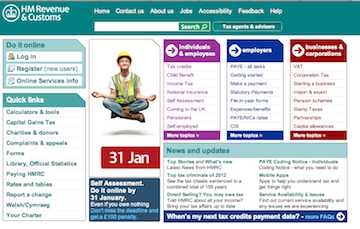An offshore tax avoidance scheme used by Aberdeen Asset Management to pay employees tax-free bonuses has been closed by Scotland's most senior court.
According to HMRC, Aberdeen Asset Management paid senior employees and directors over £31 million free of income tax and National Insurance Contributions between 2000 and 2003 using an Employee Benefit Trust (EBT).
The Scottish Court of Session last week backed HM Revenue and Customs' argument that Pay As You Earn (PAYE) and NICs should be paid on the bonuses, which were converted into shares under the complex scheme. The PAYE and NICs at stake in the case totalled £7 million, said HMRC.
This is the latest in a series of court rulings against businesses that have tried to avoid PAYE and NICs using schemes involving EBTs. The scheme used by Aberdeen Asset Management and others was outlawed in 2003.
The Exchequer Secretary to the Treasury, David Gauke, said: "The Government has made almost £1 billion available to HMRC to tackle avoidance and evasion and to ensure that the minority who try to avoid their responsibilities pay the tax due.
"This scheme, like so many others, was a waste of time and money. The tribunal decision sends a clear message to anyone who is tempted to use avoidance schemes: HMRC will pursue you and you're likely to end up having to pay the tax due, interest and the promoter's fees as well."
Jim Harra, director general, business tax, HMRC, said: "This decision will be a big help when we come to argue other cases that are currently in the courts.
{desktop}{/desktop}{mobile}{/mobile}
"We hope this success will encourage more companies to cut their losses and come forward to settle their EBT liabilities on the basis that this kind of avoidance scheme does not work."
Aberdeen Asset Management PLC used an avoidance scheme known as a Discounted Option Scheme. The company established an EBT for senior employees and directors. This set up an offshore company for each employee and subscribed for two £1 shares in those companies, each one at a premium equal to the amount of remuneration due to each employee, which was between £100,000 and £1 million.
The EBT also set up a Family Benefit Trust (FBT) for each employee. These FBTs were given an option to acquire 10,000 £1 shares in each of the individuals' companies, therefore reducing the value of the EBT-held shares. The EBT transferred its shares in the company to a nominee company set up on behalf of the employee. The option held by the FBT expired and the shares held by the nominee company increased in value. Employees then extracted the funds from their company as a loan which they will not have to repay.
The scheme was originally blocked by a First Tier Tax Tribunal in October 2010 before being decided against the taxpayer a second time (but on a narrower basis) by the Upper Tribunal in December 2011. Both HMRC and Aberdeen Asset Management then appealed that court's decision to the Scottish Court of Session, where three judges last week unanimously reinstated the decision of the First Tier Tribunal.
The Court of Session's decision can be read here. (http://www.scotcourts.gov.uk/opinions/2013CSIH84.html)
This kind of tax avoidance scheme was stopped by legislation in 2003. HMRC has so far recovered £671 million from over 600 companies which have settled their liabilities using the EBT Settlement Opportunity launched in April 2011.
Aberdeen is a corporate member of the IFP.

